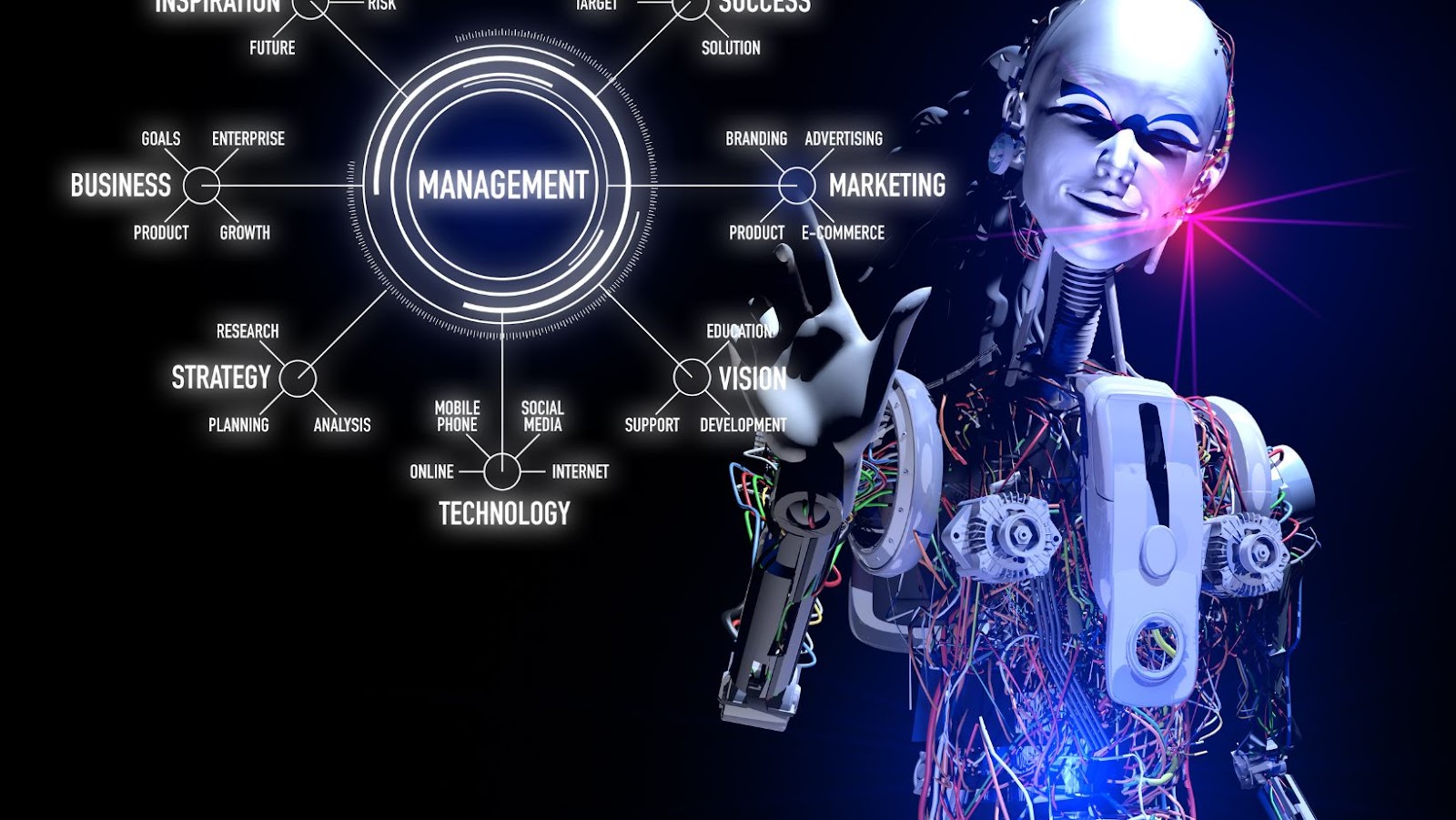Anthropic, a new AI research outfit from OpenAI’s Dario Amodei, has $124M to pursue its ambitious research goals. The team plans to explore the potential implications of its cutting-edge AI technologies and their associated ethical, legal and social implications.
In this article, we will take a closer look at Anthropic’s research focus and consider the potential implications of its work.
Anthropic is the New AI Research Outfit from OpenAI’s Dario Amodei, and it has $124M to Burn
Anthropic is an interdisciplinary research organization exploring the natural and social sciences. Founded in 1999 by scientists, Anthropic works to identify, cultivate, explore and share knowledge about our world — from human culture to natural history. By combining anthropology and ecology in new ways, their work has enabled a view into the implications of our past, present and future decisions.
Anthropic’s research includes topics such as the consequences of climate change for various geographies around the world; the impact of urbanization; the effects of pollution on ecosystems; and more. In addition, their work helps inform public discourse by providing insights into how these areas impact natural resources such as land use, water use, transportation methods, energy consumption and land management practices.
Overall, Anthropic seeks to understand the implications of human decisions on natural systems globally while helping individuals make informed decisions that consider both short-term economic gains and long-term environmental sustainability today and into the future.
Overview of OpenAI
OpenAI is an artificial intelligence research laboratory that has become the leading voice in transformative AI technologies. The company was founded in 2015 by a group of researchers, entrepreneurs and engineers with a mission to “advance digital intelligence in the way that is most likely to benefit humanity as a whole.” OpenAI seeks to create beneficial technologies through deep learning, machine learning, and natural language processing.
The primary goal of OpenAI is to develop strong artificial intelligence (AI) solutions capable of automating tasks and achieving high levels of productivity with minimal human interaction. To achieve this goal, OpenAI relies heavily on its research capabilities to explore various AI approaches and consider the potential implications of such technological advancements across industries.
Specifically, OpenAI studies the effects of AI applications on society, environmental sustainability, robotics advances, economic shifts caused by automation, safety concerns regarding autonomous systems and ethics surrounding artificial intelligence technology.
Potential Impact of Anthropic’s Work
Anthropic is a new AI research outfit from OpenAI’s Dario Amodei, and it has $124M to invest in AI research and development. This has the potential to revolutionize the world of AI technology, as the work that Anthropic can do has the potential to be groundbreaking.
In this section, we will explore some potential implications of Anthropic’s work, including impact areas and potential long-term ramifications.

Impact on AI Research
Anthropic’s research into the principles of self-improvement and reinforcement learning could significantly impact artificial intelligence research. Self-improvement is an area of AI research focused on developing algorithms to continuously improve themselves. This could allow robots to learn how to respond better in specific situations without being instructed by a human. Reinforcement learning is machine learning in which artificial agents learn from experience and by trial and error, rather than receiving explicit instructions. This could lead to robots that can teach themselves new tasks, using their own experiences to decide how best to complete those tasks.
Understanding and applying the principles of self-improvement and reinforcement learning developed by Anthropic could have far-reaching consequences for autonomous robotics, natural language processing, and computer vision technologies in fields ranging from healthcare delivery to military operations. It may even be possible for machines to obtain the ability to autonomously recognize moral behaviors or apply ethical principles in decision-making — something that has previously been thought to require conscious judgement or “common sense” reasoning.
By exploring how machines may be able to learn through experience instead of through explicit instructions like humans do, Anthopic’s work opens up new opportunities for researchers looking at intelligent systems, both socially beneficial ones as well as more sinister applications such as those used for social manipulation or surveillance using autonomous robotic platforms with embedded sensors and cameras.
Impact on Job Market
The potential impact of Anthropic’s work on job market and labor economists is significant. The increasing use of AI-enabled technology to replace human work has been a major part of the conversation, particularly in the context of automation driven by AI. Economists have long debated the implications that this may have. Some argue that increases in automation could lead to displacement of human labor—perhaps even leading to overall job loss! Others believe new industries and tasks will arise, replacing jobs evacuated by automation.
Anthropic’s research has brought these questions into sharper focus, demonstrating ways that AI technology can gain better insights from data and improve human decision-making. This enables us to explore what jobs might be replaced by AI or augmented with AI-driven processes. For example, it’s possible for an AI system programmed with anthropic principles to take over some aspects of data analysis previously performed by people, such as analyzing customer sentiments on social media or analyzing large volumes of data sets without needing it manual intervention.
In addition to illuminating the impact on the job market itself, Anthropic’s work could also increase efficiency in decision-making processes within organizations, enabling them to realize greater benefits from their investments in data science and analytics while eliminating unnecessary labor costs associated with manual processing. Furthermore, groundbreaking models developed using Anthropic Research also provide deep insight into how business decisions should be made to maximize outcomes most effectively.
By integrating anthropology with machine learning and computer vision technologies, anthropic improves upon existing algorithms with greater capabilities specifically designed for complex marketing or organizational decision-making tasks. As a result, it could revolutionize many areas within companies from marketing campaigns to employee decision support systems through deep insights into customer sentiment or behaviour analysis. Additionally, further research in Anthropology can help reveal wider implications on global markets such as ethical considerations or socio economic impacts when employing machine learning or artificial intelligence technologies at a much wider scale than just within one particular organization.

Impact on Businesses
Anthropic’s work could drastically alter how businesses operate and manage customer data. Businesses that rely on customer engagement, such as offering services or selling products, will benefit from a more efficient and transparent way of managing customer data.
In addition, businesses can use learning algorithms to gain insights into customers’ preferences for more personalised services, greatly increasing the relevance and overall satisfaction with the experience.
Finally, business owners can better understand their customers’ journeys and behaviors by utilizing Anthropic’s tools to tailor their interactions based on real-time responses. This will allow companies to provide better services while improving customer loyalty cost-effectively. From improved marketing strategies to increased sales efficiency, Anthropic’s technology has wide-ranging implications for the success of any business dealing with customer engagement.
Challenges Facing Anthropic
With the launch of Anthropic, OpenAI’s Dario Amodei has created an AI research outfit with $124M to spare. Although this may seem like a great opportunity, there are potential challenges that Anthropic will face in its journey.
In this article, we’ll discuss some potential implications of Anthropic’s work and the challenges it must overcome.
Regulatory Challenges
Regulatory challenges are among the greatest barriers to successfully implementing Anthropic’s initiatives and goals. Governments in many countries, including the US, have historically provided limited policy-level guidance and support regarding Anthropic projects. As a result, many of the important issues surrounding Anthropic’s work go unaddressed. Instead, they are left to be worked out by whatever principles or standards are adopted by the private sector working on a given project.
In addition, regulatory bodies such as local governments may seek to impose limits or extract additional compensation from individuals or organizations engaged in Anthropic endeavors. This creates greater difficulty for those undertaking such activities in certain parts of the world, which can lead to project delays and additional expense.
Finally, working with regulatory bodies at international and local levels can prove challenging because of differences in legal jurisdiction and cultural beliefs and norms regarding data privacy and intellectual property rights. This means that those undertaking Anthropic-related initiatives must consider the technical limitations and any potential political or legal issues that could arise depending on which countries they seek to collaborate with.
Ethical Challenges
Understanding the potential ethical issues associated with Anthropic’s work is key to developing solutions that benefit individuals and communities. For example, traditional environmental sustainability models rely on Earth’s limited resources and potential for overexploitation. However, this view of human-nature relations fails to account for ecosystems’ complexity and capacity to recover or regenerate given appropriate human intervention. Anthropic’s approach considers the impact of natural systems on decision-making and resource management, emphasizing social justice, resilience, and adaptive governance.
Additionally, as Anthropic seeks to build more humane societies through its work, it also exposes itself to questions of moral responsibility. Human activities are deeply intertwined with a complex network of processes. When determining project goals and outcomes, anthropic stakeholders must consider essential values like economic equity and social inclusion. Moreover, decisions made at all levels should be guided by principles that prioritize sustainable development and serve as a framework for ethical behavior in various settings.
Finally, preparing local communities for any potential changes resulting from UNESCO World Heritage activities must include critical reflection on how existing social structures can be maintained or improved along with comprehensive risk assessment strategies focused on climate change adaption.

Technical Challenges
Anthropic faces many technical challenges in implementing its mission of improving health outcomes and reducing healthcare costs. These challenges include the availability of AI-powered analytics to identify patterns and trends in large amounts of healthcare data. AI-enabled analytics technology is essential to accurately detect predictors of potential future health events or issues, allowing for early intervention and prevention strategies.
Another challenge is identifying a cost-effective way to use new and existing technologies such as machine learning, natural language processing, and cloud computing, to generate insights from medical records and other complex data types. For such technologies to be utilized correctly and with full benefit, they must integrate seamlessly with health IT systems such as electronic health records (EHRs), patient relationship management systems (PRMs), telemedicine solutions, payor networks, etc.
Anthropic also struggles with fragmentation of the data available from various sources. Different providers use different formats for their EHRs, making developing sophisticated analytics more difficult. Additionally, no single organization has access to all relevant data; for example, some hospitals may only have access to their own patients’ records while others may have access to a wider range of local and regional records; ensuring seamless integration between different forms of healthcare data will be critical moving forward.
Conclusion
While Anthropic is just starting, it has huge potential to make a difference in AI with its $124M in seed funding. Its focus on safety and trust will allow for quicker experimentation and the development of AI technology that is more reliable and secure.
As the research outfit grows, its implications for the future of AI will be increasingly felt. Let’s look at the potential implications of Anthropic’s work.
Summary of Potential Implications
The work from anthropic theorists has the potential to uncover insights into nature’s laws and the nature of reality. It also creates a larger philosophical framework for discussions about the universe and its underlying logic. The implications of this work could impact physics and philosophy, leading to novel ways of understanding phenomena such as dark energy, time travel, and even consciousness.
One potential implication of anthropic work is that it could provide evidence that our universe is part of a much larger multiverse. This idea states that our universe is just one out of many possible universes within the “multiverse” which are all inextricably linked by physical laws. If this is true, it means that events in other universes may affect us here in the present universe through numerous spiritual or metaphysical forces.
Another potential implication from this type of research is that it could give us insight into how to create new universes, or at least manipulate existing ones for our purposes. A better understanding of underlying principles may enable us to experiment with creating alternate realities and experimenting with new concepts such as time manipulation and faster-than-light travel.
The final major implication from anthropic considerations could be understanding how consciousness works within our existing universe. If quantum mechanics truly affects emergent phenomena such as human conscious experience, then anthropic’s insights will be invaluable in helping uncovering its properties at a deeper level than we currently understand them.
Recommendations for Future Research
Anthropic’s paper presents a range of exciting possibilities for future research. He has established a platform for further exploration into the influence of data-driven decision making in various domains, such as healthcare, public administration, economic policy, business and marketing. One potential direction is to investigate how data-driven decision making can be used to improve the efficiencies and effectiveness of delivery systems for services designed to meet the needs of various communities. For example, does data-driven decision making help organizations deliver better outcomes with less effort?
In addition, it will be important to explore ways in which data can be used ethically that respects all individuals regardless of their socioeconomic backgrounds and any other differences. Further work could also address issues related to data security and privacy. There are no clear-cut guidelines on how organizations should use data responsibly or protect individuals’ privacy when making decisions based on analytics. Finally, it would be useful to investigate whether organizations can effectively utilize predictive analytics efficiently and accurately to identify areas where action needs to take place quickly so that appropriate resources can be allocated promptly.
Overall, Anthropic’s work is extremely relevant today given the increasing proliferation of data sources and ever expanding technologies that enable predictive analytics. His findings’ implications for helping organizations make more informed decisions that improve service delivery have far-reaching consequences not just from within an organization but also from a social standpoint across all sectors in society.
tags = Anthropic, New AI Research Outfit, Dario Amodei, OpenAI, $124M, GPT-3, industrial-powered models, anthropic 124m series jaan tallinncoldeweytechcrunch


More Stories
Exploring Luxurious Travels: How to Choose the Right Yacht Charter Service
THC Gummies vs Delta 8: A Potent Comparison
The Vulnerable Road Users: Cyclists and Pedestrians in the Shadow of Truck Accidents